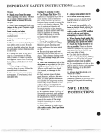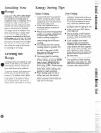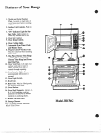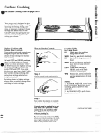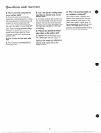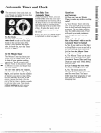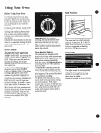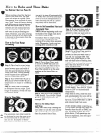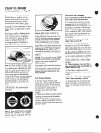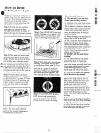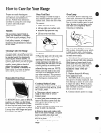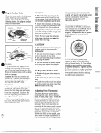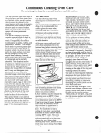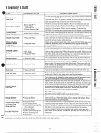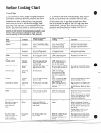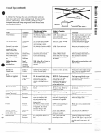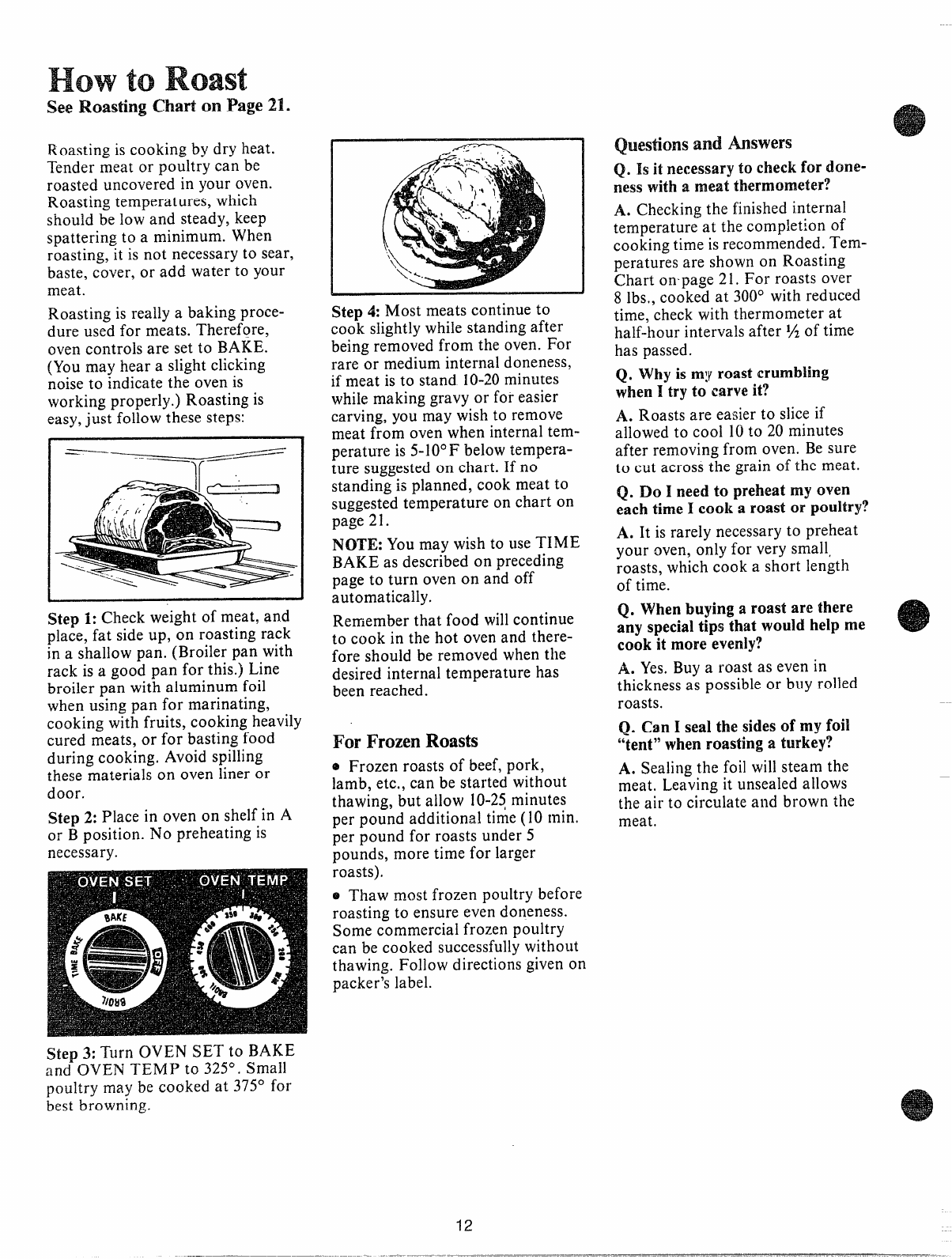
to
EkeRoasting Charton PageU.
Roasting is cooking by dry heat.
Tender meat or poultry can be
roasted uncovered in your oven.
Roasting temperatures, which
should be low and steady, keep
spattering to a minimum. When
roasting, it is not necessary to sear,
baste, cover, or add water to your
meat.
Roasting is really a baking proce-
dure used for meats. Therefore,
oven controls are set to BAKE.
(You may hear a slight clicking
noise to indicate the oven is
working properly.) Roasting
is
easy,just follow these steps:
——..—-
.~.-
––-—, ~—————
Ste~ 1: Check weight of meat, and
pla~e,fat side up, on roasting rack
in a shallow pan. (Broiler pan with
rack is a good pan for this.) Line
broiler pan with aluminum foil
when using pan for marinating,
cooking with fruits, cooking heavily
cured meats, or for basting food
during cooking. Avoid spilling
these materials on oven liner or
door.
Step 2: Place in oven on shelf in A
or B position. No preheating is
necessary.
!!$te~4: Most meats continue to
coo’kslightly while standing after
being removed from the oven. For
rare or medium internal doneness,
if meat is to stand 10-20minutes
while making gravy or for easier
carving, you may wish to remove
meat from oven when internal tem-
perature is 5-10”F below tempera-
ture suggested on chart. If no
standing is planned, cook meat to
suggested temperature on chart on
page 21.
NOTE:Youmay wish to use TIME
BAKE as described on preceding
page to turn oven on and off
automatically.
Ren-iemberthat food willcontinue
to cook in the hot oven and there-
fore should be removed when the
desired internal temperature has
been reached.
For Frozen Roasts
o
Frozen roasts of beef, pork,
lamb, etc., can be started without
thawing, but allow 10-25minutes
per pound additional time (10 min.
per pound for roasts under 5
pounds, more time for larger
roasts).
@Thaw most frozen poultry before
roasting to ensure even doneness.
Some commercial frozen poultry
can be cooked successfullywithout
thawing. Follow directions given on
packer’s label.
QWMims‘andAnswers
Q.
ISit necessaryto checkfor done-
ness witha meat therrnometdr?
A. Checking the finished internal
temperature at the completion of
cooking time is recommended. Tem-
peratures are shown on Roasting
Chart on-page 21. For roasts over
8 lbs., cooked at 300° with reduced
time, check with thermometer at
half-hour intervals after % of time
has passed.
Q. Why is my roastcrumbling
whenI tryto*carveit?
A. Roasts are easier to slice if
allowed to cool 10to 20 minutes
after removing from oven. Be sure
to cut across the grain of the meat.
Q. Do 1need to preheatmy oven
eachtime I cook a roastor poultry?
A. It is rarely necessary to preheat
your oven, only for very small,
roasts, which cook a short length
of time.
Q. Whenbuyinga roast arethere
any specialtips that would help me
cook it moreevenly?
A. Yes.Buy a roast as even in
thickness as possible or buy rolled
roasts.
Q. CanI seal the sidesof my foil
“tent”whenroastinga turkey?
A. Sealing the foil will steam the
meat. Leaving it unsealed allows
the air to circulate and brown the
meat.
Step 3: Turn OVEN SET to BAKE
and OVEN I“EMP to 325°. Small
poultry may be cooked at 375° for
best browning.
12



